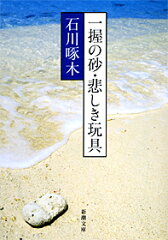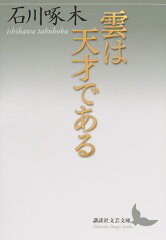
<prologue>
I started a blog called “The Baby Boomer Generation’s Miscellaneous Blog”(Dankai-sedai no garakutatyou:団塊世代の我楽多(がらくた)帳) in July 2018, about a year before I fully retired. More than six years have passed since then, and the number of articles has increased considerably.
So, in order to make them accessible to people who don’t understand Japanese, I decided to translate my past articles into English and publish them.
It may sound a bit exaggerated, but I would like to make this my life’s work.
It should be noted that haiku and waka (Japanese short fixed form poems) are quite difficult to translate into English, so some parts are written in Japanese.
If you are interested in haiku or waka and would like to know more, please read introductory or specialized books on haiku or waka written in English.
I also write many articles about the Japanese language. I would be happy if these inspire more people to want to learn Japanese.
my blog’s URL:団塊世代の我楽多(がらくた)帳 | 団塊世代が雑学や面白い話を発信しています
my X’s URL:団塊世代の我楽多帳(@historia49)さん / X
1.My Favorite Tanka by Ishikawa Takuboku
(1) On the day when all my friends seem greater than me, I buy flowers and spend time with my wife
友がみな 我より偉く見ゆる日よ 花を買ひ来て 妻と親しむ
(2) Facing the mountains of my hometown, I have nothing to say. How grateful I am for the mountains of my hometown.
ふるさとの 山に向かひて 言ふことなし ふるさとの山は ありがたきかな
Takuboku has many famous tanka poems, but the two above are my favorite.
(1) means, “All my friends are rising in the world, but I am the only one left behind. Whenever I feel such self-loathing and depression, I buy flowers and go home with my wife to love flowers and have a friendly talk with her to distract myself from my loneliness.
He was confident and proud of himself, but he was frustrated that the world did not appreciate him as much as he would like it to. Spending time with close family members, such as his wife and children, provided at least a measure of comfort and solace.
Takuboku was 24 years old and working as a proofreader for the Tokyo Asahi Shimbun newspaper when he wrote this poem in “A Handful of Sand”.
Many of my friends from junior high school had graduated from advanced schools and were on illustrious courses. Linguist Kyosuke Kindaichi (1882-1971), who later became famous for his “Ainu language research,” became a university assistant in Tokyo, and Nomura Kodo (1882-1963), who became famous for his “Zenigata Heiji Catchers’ Tales,” dropped out of college but was active as a newspaper reporter.
Whenever he heard rumors of their activities, Takuboku must have felt saddened by his own circumstances that did not allow him to aspire.
(2) is another tanka from “A Handful of Sand”. Takuboku, who was chased away from his hometown Shibumin-mura by a stone, came to Tokyo, but he missed his hometown Mount Iwate. It is said that the mountains of Takuboku’s hometown had the power to encourage and comfort him in his hardship.
I, too, feel the same emotion when I look up at the Hokusetsu mountain range in the northern part of my hometown, Takatsuki.
2. about Ishikawa Takuboku
Ishikawa Takuboku (1886-1912) was born in a Soto Zen priest’s family. When he was one year old, his father was transferred to Houtokuji temple in Shibumin village, and the family moved to Shibutami village.
In 1898, at the age of 12, he entered Morioka Junior High School. It was during his junior high school days that he met Setsuko Horiai, who would later become his wife, and Kyosuke Kindaichi, who would become his best friend. However, he was expelled from Morioka Junior High School for cheating. Was he a “destructive and rebellious juvenile delinquent” like Yutaka Ozaki (1965-1992) in modern times, with his conflicts and cries of heart toward school and society?
After reading “Myoujyou” (The Bright Star), he became devoted to the tanka poems of Akiko Yosano (1878-1942) and others, and under the influence of senior student Choichi Nomura (later Kodo Nomura) and others, he embraced his literary aspirations.
In 1904, at the age of 18, he became engaged to Setsuko Horiai, with whom he had been in love in Morioka.
In 1905, his family was chased out of Houtokuji Temple in Shibutami Village because his father failed to pay his religious fees. As a result, he was obliged to support his parents, his sister and his wife’s family.
After working as a “substitute teacher” in his hometown, he worked as a newspaper reporter in Hokkaido and moved to Tokyo to write novels, tanka poems, and other creative works, but his prodigal habits made his life extremely difficult.
In 1910, while working as a proofreader for the Tokyo Asahi Shimbun, he visited Natsume Soseki, who was hospitalized with a stomach ulcer (so-called “Shuzenji’s great illness”).
He died of pulmonary tuberculosis in 1912 at the young age of 26. Natsume Soseki attended his funeral.
3. Ishikawa Takuboku’s novels
After his death, Ishikawa Takuboku was highly praised as a genius poet and poet, but he also wrote a novel called “Clouds are geniuses,” with a “substitute teacher” as the main character, who is thought to be modeled after him. He wrote the novel thinking of himself as a “genius,” but the content was irritating, reflecting his excessive self-consciousness, and did not receive high praise.
By the way, “substitute teachers” do not mean today’s “part-time teachers,” but rather “teachers without teaching credentials,” which existed in prewar elementary schools. There were not enough graduates from teacher training schools such as “Normal Schools” (today’s Colleges of Education and Faculties of Education), so they were substituted by unqualified teachers.
There is a section in his diary that mentions this novel.
This is the writing of a depressed, revolutionary spirit, also swirling in a young man’s chest as chaos. It is unprecedented in both subject and conception. It is the bell of dawn that announces the great destruction of the revolution. The protagonist is me, and there are all these strange characters. As I was writing this, my spirit became unusually excited.
I would like to introduce a part of this novel, though it is a little long. It is a part of “Amano-kun’s words”, which the main character, a substitute teacher (modeled on Takuboku himself), also loves as his elder brother. Apparently, only his passion and ambition seemed to be “spinning out of control”.
Amano-kun said to me, “You are an unhappy man, an unhappy man indeed. But don’t be too downhearted. You must drink up all the dregs of life’s misfortunes to become a true human being. Life is a long dark tunnel, and there are skeletal forests called cities everywhere. You must not get lost in it and forget your way out.
And there is an eternal sorrow running down your legs, probably from before the beginning of your life. And just because you are prevented from going on your way, you must not come back as you are, for the dark hole will become even darker.
Death or advance, there is no other way but these two. Advancement is the battle. To fight, you must be energetic. So you must not be too energetic. At least you should stay alive and fight until the end, until you reach the end of your life.
If blood and tears do not dry up, there is no need for weapons, no need for military tactics, and no need to fight with dignity. If you are not willing to live in this world, that’s all there is to it. At least you should not have any pessimistic thoughts. As I have discussed with you in the past, is there anything in society today that is not worthy of the axe of destruction? There is no room for improvement in today’s society except to destroy everything.
We must leave the great task of construction to the geniuses who will come later, and we must first take the axe to the root and destroy it. But this is not an easy fight. It is not easy, and therefore requires more energy than ever before. Do not lose heart. It is, of course, regrettable that you are going back to your homeland as a beggar…”
Takuboku, who worked as a proofreader for the Tokyo Asahi Shimbun, collected daily articles on the “Taigyaku Incident” by Koutoku Syusui, obtained and researched Kropotkin’s writings and trial records, and wrote “The Situation of the Closing of the Times” and “A LETTER FROM PRISON”.
“I work and work, but still my life is not easy, and I look at my hands.”
働けど 働けど 猶(なほ)わが暮らし 楽にならざり ぢっと手を見る
In this tanka poem, there is a premonition that Takuboku was running into socialist ideology. He may have been infatuated with the socialism and anarchism of Koutoku Syusui.
4. the difference between “waka” and “tanka
As a side note, do you know the difference between “waka” and “tanka”?
Waka” was originally a generic term for what was called ‘Yamato Uta’ in the Nara period (710-794). “Yamato Uta” means “poetry unique to Japan”.
There were four types of “yamato-uta,” based on five- and seven-note syllables: choka, tanka, sedoka, and bussoku-sekka.
In the Heian period, however, few poems other than tanka were composed. Gradually, tanka came to be regarded as waka.
And since long poems were no longer produced, the “short” in “tanka” became meaningless and gradually came to be called “waka” or “poem”.
However, Masaoka Shiki (1867-1902), a Meiji-era haiku poet and poet who promoted the “haiku and tanka innovation movement,” extremely disliked the technical wordplay-like waka of the Heian period and considered the simple and natural “sketching” of the Manyoshu poems to be the orthodox version.
So, under the slogan “Return to Manyoshu! as his slogan, he insisted that the poetry of the Manyoshu should be called “tanka” and presided over the “Negishi Tanka Kai.
He totally rejected the Kokin Waka Shu and harshly criticized Fujiwara no Teika and Ki no Tsurayuki. He rejected waka poetry of the Heian period. However, there is a view that Shiki’s criticism was a reaction to the fact that the Keien school, which prevailed at the Imperial Court Poetry Office at the time, used the Kokin Waka Shu as a basis for authorizing a skeletonized standard of waka poetry, etc.
Because of these circumstances, poems composed after the Meiji period were again called “tanka” instead of waka.

